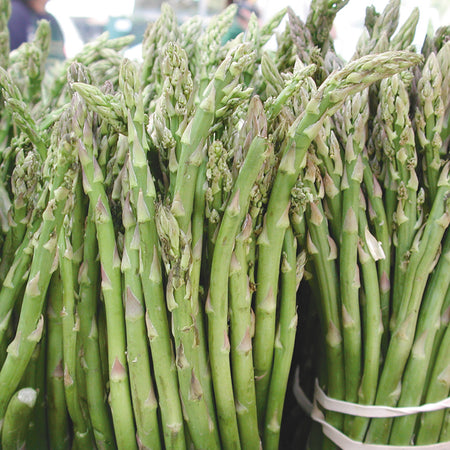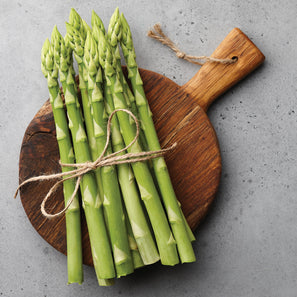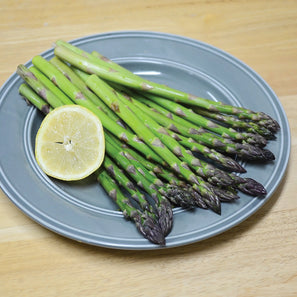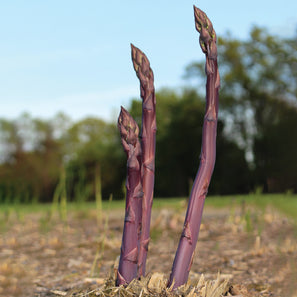JERSEY KNIGHT
Product Description:
Asparagus crowns are 1 year old and ship in March or April. The crowns are inspected by the New Jersey Department of Agriculture and are free of Fusarium. Please order early for best availability. Available only within the contiguous US.
| Soil Temp for Germ | 65–80°F |
| Seed Depth | ¼" |
| Days to Emergence | 10–25 |
| Soil Temp for Transp | 40–45°F |
| Plant Spacing | 10–15" |
| Row Spacing | 3–6' |
| Fertilizer Needs | High |
| Minimum Germination | 75% |
| Seeds per Gram | N/A |
| Seed Life | 3 years |
Culture
• Asparagus plants are dioecious, meaning there are both male & female plants
• Male plants produce thicker larger spears
• Female plants produce small berries
• Asparagus is a hardy perennial
• The key to good production is well-prepared, deeply dug beds with lots of organic matter
• Fertilize beds early in the spring and after harvest with 1–2 cups of TSC's Complete fertilizer per 10 row feet
• Keep beds moist
Direct Sowing
• Not recommended
Transplanting
• Start transplants 60–90 days before your last frost
• Transplant seedlings after the danger of frost
Asparagus Root Crowns
• Plant your 1 year old crowns shortly after you receive them
• Crowns can be transplanted 4–6 weeks before last frost
• Dig a 4–6 inch trench; create a hill in the center
• Drape roots over the hill; cover roots with soil
• Fill in trench as asparagus grows
• Complete instructions are included
Insects & Diseases
• Common pests: Asparagus beetles and slugs
• Pest control: Pyrethrin, slug traps or bait
• Common diseases: Rust, Fusarium wilt, Fusarium stem and crown rot
• Disease prevention: Maintaining good plant vigor
Harvest & Storage
• A moderate 2–3 week harvest can be expected from crowns in 2–3 years
• Harvest spears when they're 6–10 inches tall, cutting them off about 1 inch below soil surface
• Store at 36°F and 100% relative humidity
• To maintain perennial bed, leave smaller spears to mature into ferns, which will regenerate the plant
• With each successive year, your plant productivity and harvest window will increase








